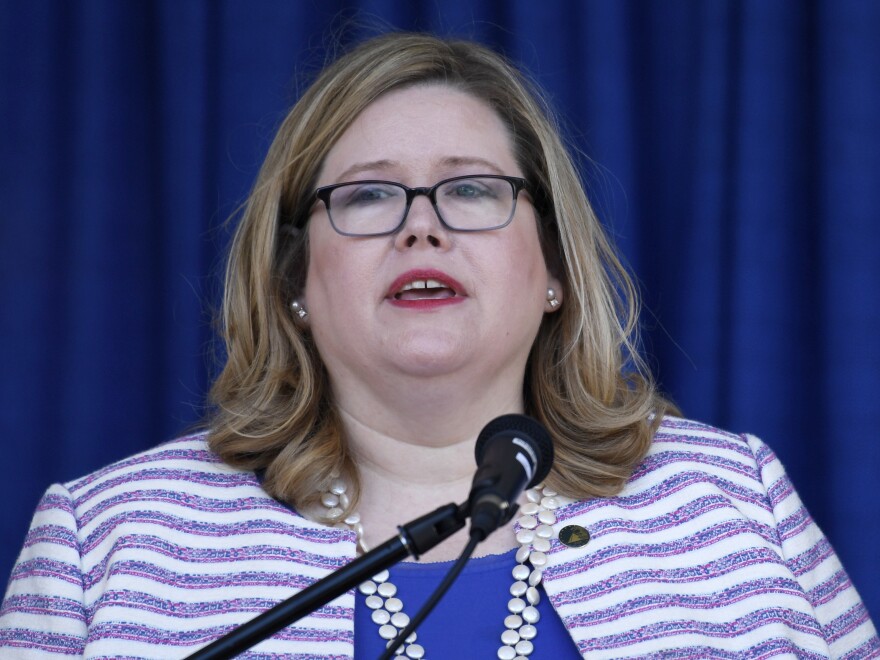Emily Murphy seems to have seen the trouble coming.
As head of the General Services Administration, Murphy plays a key role in the presidential transition — unlocking nearly $10 million in federal dollars for the president-elect to begin hiring staff, and providing office space and access to officials across government agencies.
In a typical election, it's a determination that's made within a matter of hours. But 12 days since President-elect Joe Biden was declared the winner of the election, the Trump appointee has still not signed off on the paperwork.
In anticipation of having to hold up the transition, The Associated Press reported this week, Murphy held a Zoom call with one of her predecessors at the agency, Dave Barram, to seek his advice. Barram led the GSA in 2000 when the Florida recount delayed the presidential transition by more than a month.
"She knew I had been through something that she was, I think, imagining what might happen to her," Barram said in an interview Thursday with NPR's Morning Edition. "My conversation with her was that as tough as this is going to be, just as my mother always told me, 'Do the right thing and live with the consequences.' "
There are clear differences between what Barram faced in 2000 and Murphy's situation today. Twenty years ago, the Florida outcome determined which candidate would cross 270 votes in the Electoral College, and the final result came down to a few hundred votes. Today, Biden sits at 290 electoral votes, and in Pennsylvania, the state that put him over the top, he leads by more than 81,000 votes.
"When I talked to her, I could see in her eyes that she really wanted to do [the right thing]," Barram said. "And she said that — she really wanted to do the right thing. And I think she still does. But I think there's a lot of pressures that she has."
President Trump has refused to concede the election and continues to challenge the outcome based on unproven allegations of fraud.
Barram said the transition delay threatens to harm everything from the government's response to the coronavirus to matters of national security.
"We're fortunate that Joe Biden is an experienced guy, but they still need every ounce of help that the outgoing administration can provide," he said. "And it's just unconscionable that they're not doing that."
Copyright 2021 NPR. To see more, visit https://www.npr.org. 9(MDA5NTM4MTIyMDE0MTg3NDc2MTVlZjdmNQ001))


